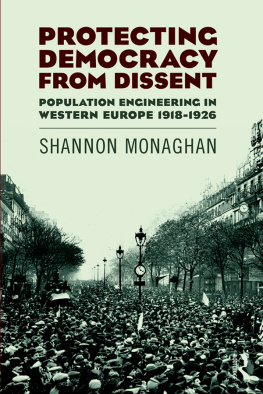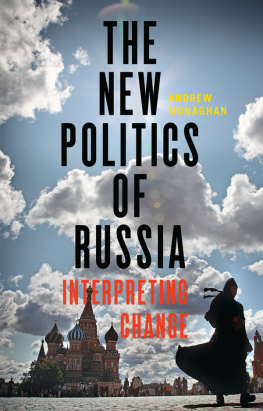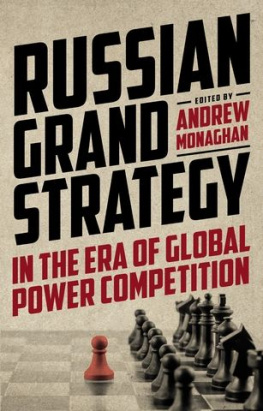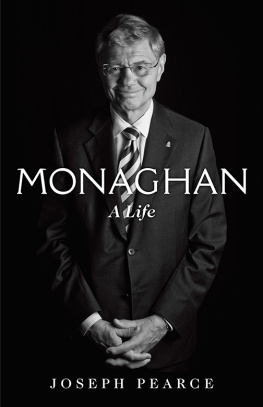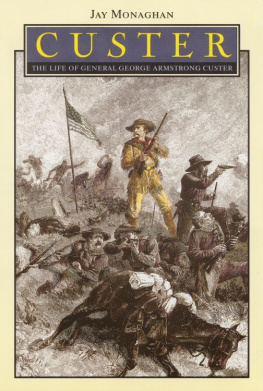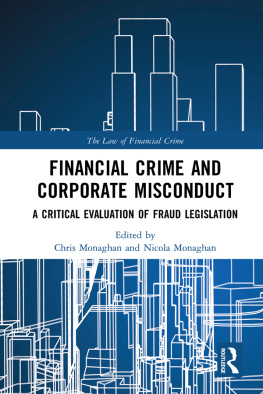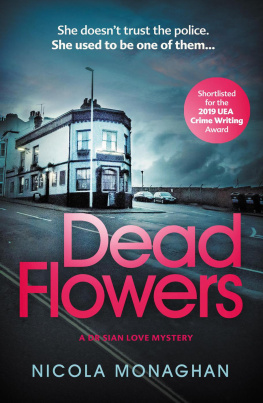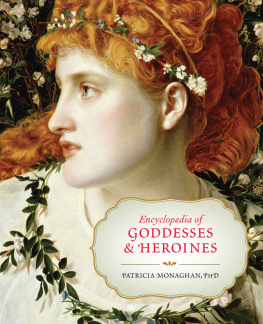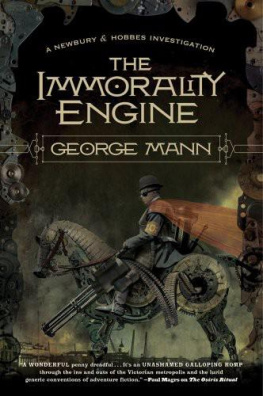STATE CRIME AND IMMORALITY
The corrupting influence
of the powerful
Mark Monaghan and Simon Prideaux
First published in Great Britain in 2016 by
Policy Press University of Bristol 1-9 Old Park Hill Bristol BS2 8BB UK Tel +44 (0)117 954 5940 e-mail
North American office: Policy Press c/o The University of Chicago Press 1427 East 60th Street Chicago, IL 60637, USA t: +1 773 702 7700 f: +1 773-702-9756 e:
Policy Press 2016
British Library Cataloguing in Publication Data
A catalogue record for this book is available from the British Library
Library of Congress Cataloging-in-Publication Data
A catalog record for this book has been requested
ISBN 978 1 44731 675 6 paperback
ISBN 978 1 44731 674 9 hardcover
ISBN 978-1-4473-2341-9 ePub
ISBN 978-1-4473-2342-6 Mobi
The right of Mark Monaghan and Simon Prideaux to be identified as authors of this work has been asserted by them in accordance with the Copyright, Designs and Patents Act 1988.
All rights reserved: no part of this publication may be reproduced, stored in a retrieval system, or transmitted in any form or by any means, electronic, mechanical, photocopying, recording, or otherwise without the prior permission of Policy Press.
The statements and opinions contained within this publication are solely those of the authors and not of the University of Bristol or Policy Press. The University of Bristol and Policy Press disclaim responsibility for any injury to persons or property resulting from any material published in this publication.
Policy Press works to counter discrimination on grounds of gender, race, disability, age and sexuality.
Cover design by Qube Design, Bristol
Front cover image: Getty
Readers Guide
This book has been optimised for PDA.
Tables may have been presented to accommodate this devices limitations.
Image presentation is limited by this devices limitations.
Contents
List of tables
About the authors
Mark Monaghan is a lecturer in sociology, social policy and crime at the University of Leeds, UK. His main area of research considers the scientific and political battles through which policies are made in heavily politicised areas. His most recent publications are in the area of drugs policy.
Simon Prideaux is an associate professor of social policy, sociology, disability studies and crime in the School of Sociology and Social Policy, University of Leeds. His interests take in comparative access policy, welfare discourses, conditionality and political ideologies.
Acknowledgements
This book has been a long time in the making and much has happened since the first lines were penned. We express gratitude to the anonymous reviewers for their helpful comments in helping to clarify some of the arguments we were trying to make and giving extremely useful suggestions on relevant literatures that we had missed. We would also like to thank all students past and present who have completed our module on Organised Crime, Violence and the State many of the issues discussed in this book were inspired from their ingenuity in seeking out, researching and analysing crimes of the powerful. We hope that this book will prove a valuable resource for the next generation of scholars coming through.
We would also express thanks to our colleagues in the School of Sociology and Social Policy at the University of Leeds. In particular, our gratitude extends to Tom Campbell, Mark Davis, Nick Emmel, Joanne Greenhalgh, Suzanne Hallam, Ana Manzano, Emma Nelson, Kirsteen Paton, Ruth Patrick, Ray Pawson, Emma Wincup and Henry Yeomans, with whom we have discussed ideas and bemoaned the continuously missed deadlines. Outside Leeds, Ian Hamilton, Debbie Hawkins, Charlie Lloyd and James Windle have provided a similar service. We would also like to express our gratitude to everyone at Policy Press, in particular Emily Watt, for initially supporting our early idea, and then Victoria Pittman for seeing the project through when we are sure there were times she wished she had never got involved.
On the domestic front, it has been a time of rapid change. MM would like to express undying gratitude to Sonia for her never-ending patience and continuous support. Much love to her and to our children, Joseph and Rosa, both of whom arrived throughout the duration of writing this book. These two are the reason a significant proportion of the prose was written between the hours of two and four in the morning, so any errors are obviously down to them. In addition, they have provided the perfect excuse for the aforementioned missed deadlines. Finally, SP would like to thank Sammy for her patience and Lon and Hugo for being the grandsons that they are.
ONE
Introduction
In 2012, a permanent sub-committee of the US Senate Committee on Homeland Security and Government Affairs published a 300-page report on the failings of HSBC bank which, according to a BBC report, led to it being used as a conduit for drug kingpins and rogue nations (BBC, 2012). The Committees investigation and subsequent report led to the bank being fined almost $2bn for failing to stop criminals using its systems to launder money.
Alongside circumventing US laws outlawing trade with Iran, Burma and North Korea, it was the Mexican subsidiary of HSBC (HBMX) that was responsible for laundering money from Mexican drug cartels. Between 2007 and 2008 it was estimated that HBMX shipped $7bn to HSBCs US operation, more than any other HSBC affiliate. This was despite the fact that Mexican and US authorities expressed concern that drug traffickers were able to circumvent the anti-money laundering controls at US banks by transporting US dollars to Mexico, and then using HBMX to transfer it to the US (BBC, 2012).
The BBC report went on to state that the Senate Committee reported that high-profile clients involved in drug trafficking, the bank had had millions of dollars of suspicious bulk travellers cheques and a resistance to closing accounts that were linked to suspicious activity. The US arm of HSBC (HBUS) nevertheless classed Mexico as a low-risk country and, as a consequence, did not adequately track its transfers and other dealings. In reality, as the Committee noted, it had inadequate money laundering controls in spite of the fact that HBMX was operating in a country under siege from drug crime, violence and money laundering (BBC, 2012).
The case of HSBC is revealing. It is unusual in that it was brought widely to the attention of the public. In other words, it was an example where the criminal activities of the powerful become newsworthy.
Revisiting the dark figure of crime
A key lesson from the criminological literature and one that is widely acknowledged is that the media have a significant role in creating crime and for current purposes they have systematically misrepresented the nature of criminality. Reinarman (1997, p101) commented that the mass media has engaged in the routinization of caricature rhetorically recrafting worst cases into typical cases and the episodic into the epidemic. Writing over 40 years ago, Jock Young stipulated that as the media are preoccupied over what they perceive to be newsworthy, they are capable of distorting the true nature of crime in society (Young, 1974). For many years, the issue of corporate crime was considered mundane and not consistent with the professional imperatives of journalism (Chibnall, 2004), which need crimes to be sensational and graphic if they are to reach the pages of the printing press. According to Young: The media does not reflect the real world but, instead, newspapers select events which are




